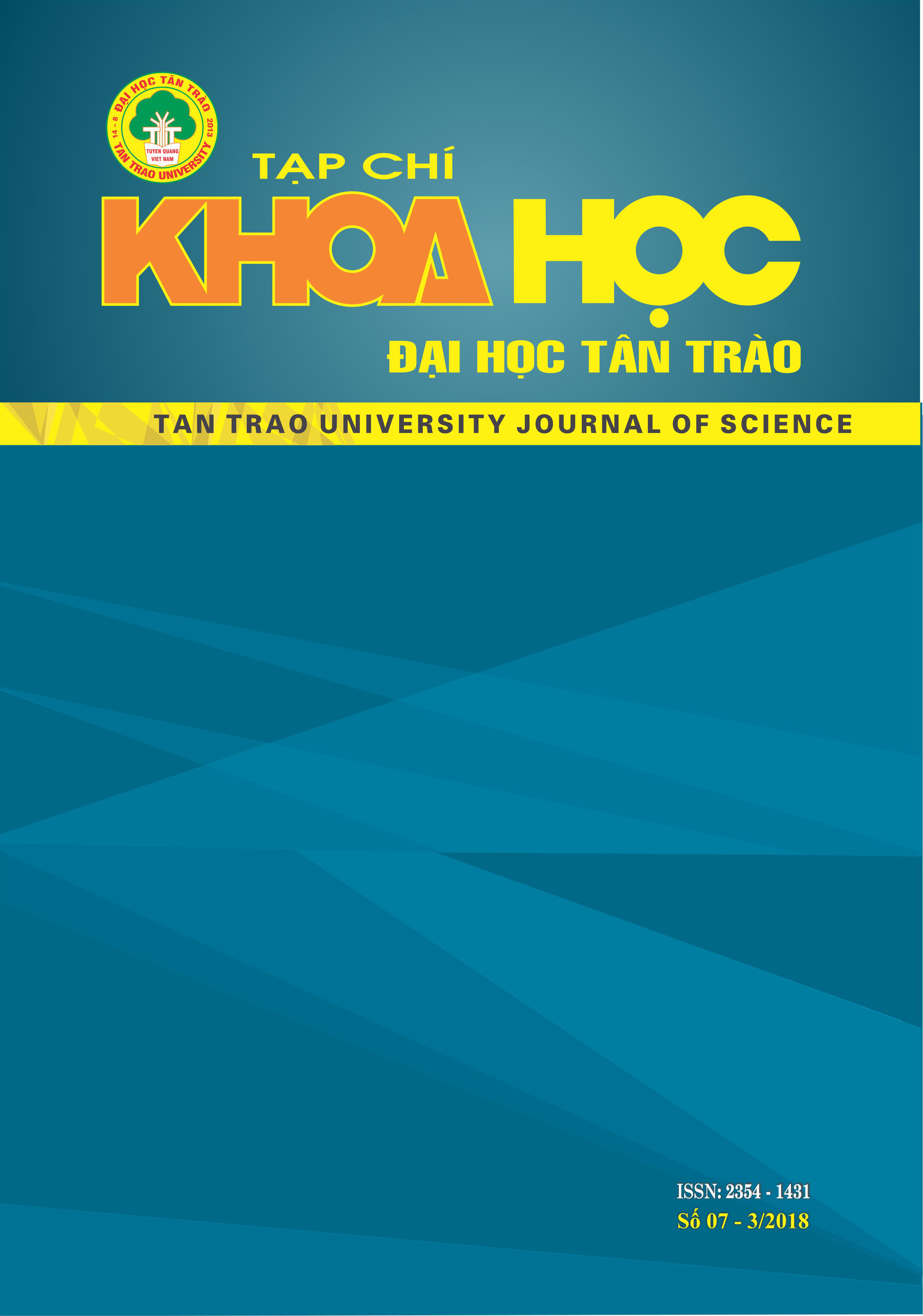Semantic and pragmatic values of concessions sentences in “The call of President Ho Chi Minh”
DOI:
https://doi.org/10.51453/2354-1431/2018/116Keywords:
Concessions sentence; Arguments; inverse of relation of cause and result; The call of President Ho Chi Minh.Abstract
Concessions sentence is the type of compound sentence that have main- subsidiary parts that express arguments that follow inverse of relation of cause and result, to show situation of inverse of the facts, so it would draw attention and is higher than usual logical relation. So, concessions sentence has the impact on the perception of the recipient that is stronger than cause and result sentences and condition sentences; and most suitable to describe things that were impacted by actions, feelings and volitions of the people. It works great in showing arguments to promote volitions, positive feelings of the people to propagate and convince the recipient. In the text “The call of President Ho Chi Minh”, author used a lots of sentences, in which has inverse of relation of cause and result that has unspecified time. Besides, through the forms and means of expression, we can understand President Ho Chi Minh use the type of concession sentence very reasonable and creative, versatile, rich, varied and ingenious. This is an important contribution to express encouragement, calls to multiple objects with purposes and different shades. The results of the analysis in the paper to help people understand and learn how to use the language of President Ho Chi Minh.
Downloads
References
1. Diệp Quang Ban, Ngữ pháp tiếng Việt, Nxb Giáo Dục, 2005;
2. Nguyễn Đức Dân, Lô gích – Ngữ nghĩa – Cú pháp, Nxb ĐH & THCN, Hà Nội, 1987;
3. Cao Xuân Hạo, Tiếng Việt - Sơ thảo ngữ pháp chức năng (quyển 1), Nxb Giáo dục, Hà Nội, 1991;
5. Đào Thanh Lan, “Phân biệt câu ghép nhân nhượng với câu ghép tương phản trong tiếng Việt”, Tạp chí Ngôn ngữ số 5, 2016, tr. 16-22;
6. Hoàng Trọng Phiến, Ngữ pháp tiếng Việt - câu, Nxb Đại học Quốc gia Hà Nội, 2008;
7. Nguyễn Vân Phổ, “Mặc dù”, “nhưng” và quan hệ nhượng bộ”, Tạp chí ngôn ngữ, số 2/2012;
8. Nguyễn Kim Thản, Nghiên cứu ngữ pháp tiếng Việt, Nxb Khoa học Xã hội, 1997;
9. Nguyễn Thị Thúy Thành, Khảo sát một số phương tiện biểu thị quan hệ nghịch nhân quả trong thơ Xuân Quỳnh - Luận văn Thạc sĩ Ngôn ngữ học, Đại học Khoa học Xã hội và Nhân văn - Đại học Quốc gia Hà Nội, 2013;
10. Nguyễn Thị Phương Thùy, “phương tiện biểu hiện và giá trị ngữ nghĩa của quan hệ nghịch nhân quả trong thơ Xuân Quỳnh”, Tạp chí Từ điển học & bách khoa thư, số 4, 2014, tr. 114-118;
11. Hồ Chí Minh, Những lời kêu gọi của Hồ Chủ tịch (Tập 3), Nxb Sự thật, 1954 – 1955;
12. Hồ Chí Minh, Những lời kêu gọi của Hồ Chủ tịch (Tập 4), Nxb Sự thật, 1956 – 1957;
13. Hồ Chí Minh, Những lời kêu gọi của Hồ Chủ tịch (Tập 5), Nxb Sự thật, (1958 – 1959).
Downloads
Published
How to Cite
Issue
Section
License

This work is licensed under a Creative Commons Attribution-ShareAlike 4.0 International License.
All articles published in SJTTU are licensed under a Creative Commons Attribution-ShareAlike 4.0 International (CC BY-SA) license. This means anyone is free to copy, transform, or redistribute articles for any lawful purpose in any medium, provided they give appropriate attribution to the original author(s) and SJTTU, link to the license, indicate if changes were made, and redistribute any derivative work under the same license.
Copyright on articles is retained by the respective author(s), without restrictions. A non-exclusive license is granted to SJTTU to publish the article and identify itself as its original publisher, along with the commercial right to include the article in a hardcopy issue for sale to libraries and individuals.
Although the conditions of the CC BY-SA license don't apply to authors (as the copyright holder of your article, you have no restrictions on your rights), by submitting to SJTTU, authors recognize the rights of readers, and must grant any third party the right to use their article to the extent provided by the license.


